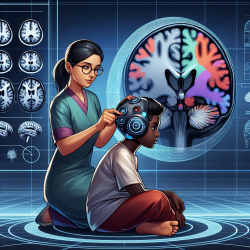1. Global Health and Equity in Pediatric Neurosurgery
Harkness emphasizes the importance of achieving equity in health care, especially for children in LMICs. He notes that five billion people lack access to safe, affordable surgical and anesthetic care. This inequity is particularly pronounced in pediatric neurosurgery, where specialized care is often unavailable.Practitioners can address this by:
- Advocating for policies that support universal health coverage, including essential surgical care for children.
- Participating in global health initiatives and collaborations that aim to improve surgical care in underserved regions.
- Supporting training programs that build local capacity in pediatric neurosurgery in LMICs.
2. The Role of Education and Training
Harkness underscores the critical role of education and training in improving pediatric neurosurgery outcomes. He shares examples of successful teaching courses and collaborations in countries like Myanmar, India, and Nepal.To enhance skills and knowledge, practitioners should:
- Engage in continuous professional development through international training programs and workshops.
- Utilize digital platforms and telemedicine to access educational resources and connect with global experts.
- Mentor and train local healthcare providers in LMICs to ensure sustainable improvements in pediatric neurosurgery.
3. Advocacy and Political Engagement
The address highlights the importance of advocacy and political engagement in addressing the unmet needs in pediatric neurosurgery. Harkness calls for neurosurgeons to be active advocates for their specialty at national and international levels.Practitioners can contribute by:
- Participating in advocacy efforts to raise awareness about the importance of pediatric neurosurgery.
- Collaborating with organizations like the World Health Organization (WHO) and the Global Initiative for Children’s Surgery (GICS) to influence policy changes.
- Supporting initiatives that promote the inclusion of pediatric neurosurgery in national health plans.
4. Leveraging Technology for Better Outcomes
Harkness discusses the potential of digital technology and telemedicine in improving access to pediatric neurosurgery. He highlights the InterSurgeon platform, which matches centers offering services with those in need of assistance.Practitioners should consider:
- Utilizing telemedicine to provide remote consultations and surgical guidance in resource-limited settings.
- Joining platforms like InterSurgeon to collaborate with international peers and share best practices.
- Investing in digital tools and resources that enhance the delivery of pediatric neurosurgical care.
Encouraging Further Research
Harkness's address serves as a call to action for practitioners to engage in further research to address the gaps in pediatric neurosurgery. By contributing to the body of knowledge, practitioners can help develop evidence-based solutions that improve outcomes for children worldwide.To read the original research paper, please follow this link: Presidential address 2017 William Harkness FRCS October 10th 2017 Denver, Co USA: 2017—annus mirabilis, a global view of neurosurgery for children.










